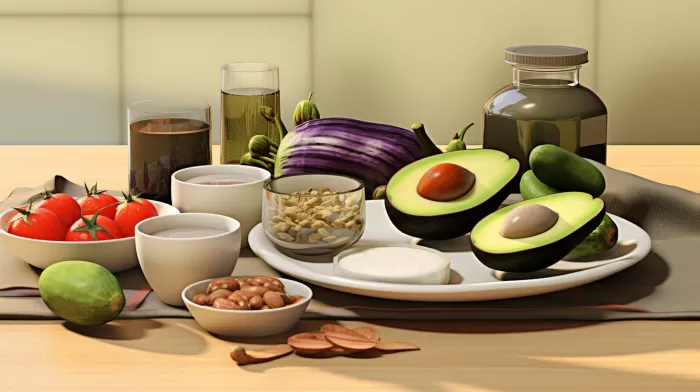The late Dr. Robert Atkins, a well-known expert in low-carb diets, developed an eating plan that many have found successful for weight loss. Now, researchers have taken his concept to create an even more powerful method for shedding pounds and improving heart health. They’ve developed the Eco-Atkins diet, a high-protein, low-carb meal plan that focuses on plant-based foods.
By embracing a vegan lifestyle while adhering to the principles of a low-carb diet, the Eco-Atkins diet is more effective for weight loss and heart health improvement. In this article, we’ll explore the details of this approach and how it can help achieve a leaner, healthier body.
The Science Behind Eco-Atkins
Canadian researcher David Jenkins of St. Michael’s Hospital in Toronto led a study that investigated the effects of veganism on the Atkins diet. The goal was to combine the cholesterol-lowering benefits of a vegan diet with the weight loss advantages of a low-carb diet.
The study involved 23 obese men and women who followed the Eco-Atkins diet for six months. They were advised to reduce their calorie intake by 40% from weight maintenance levels. Instead of providing specific meals, participants received menu plans featuring a variety of permitted plant-based foods.
The new diet provides 26% of calories from carbohydrates, 31% from protein, and 43% from fat—mainly from vegetable oils. The results were encouraging: participants’ cholesterol levels dropped by an average of 10%, and they lost four more pounds over six months compared to those on a low-fat, high-carb diet.
Carbohydrate Sources in the Eco-Atkins Diet
To ensure weight loss and overall health, the Eco-Atkins diet focuses on high-fiber, low-starch carbohydrate sources, such as barley, oats, okra, and eggplant. These nutritious plant foods provide essential vitamins, minerals, and antioxidants, as well as satisfying fiber to keep you feeling full and prevent overeating.
Protein Sources in the Eco-Atkins Diet
Instead of animal-based proteins, like meat and dairy, the Eco-Atkins diet emphasizes plant-based protein sources. These include soy, gluten, nuts, vegetables, and whole grains. Not only do these foods provide the protein needed for building and repairing muscle tissue, but they also offer an array of vitamins, minerals, and phytonutrients essential for optimal health.
When selecting plant-based proteins, choose whole food sources like tempeh, tofu, seitan, and legumes, rather than processed products like veggie burgers and protein powders. These minimally processed foods retain more of their naturally occurring nutrients.
Healthy Fats in the Eco-Atkins Diet
The Eco-Atkins diet, though low in carbs, is relatively high in fat. However, these fats come from healthy plant-based sources, like vegetable oils, nuts, soy, and avocados. These plant-based fats, particularly monounsaturated and polyunsaturated fats, have been shown to improve heart health, reduce inflammation, and optimize brain function.
When following the Eco-Atkins approach, avoid hydrogenated oils and trans fats found in processed foods, and opt for whole food sources like nuts, seeds, and avocados.
Balancing Eco-Atkins with Exercise
To optimize your weight loss efforts, combine the Eco-Atkins diet with regular physical activity. Aim for at least 150 minutes of moderate-intensity exercise, such as brisk walking, biking, or swimming, each week.
Additionally, incorporate strength training exercises, like weightlifting and bodyweight resistance, into your fitness routine at least twice a week. Building muscle mass increases your metabolism, helping you burn calories more efficiently, even at rest.
Eco-Atkins: A Balanced, Nutritious Approach to Weight Loss
The Eco-Atkins diet takes the core principles of the Atkins low-carb approach and adapts them for those wishing to follow a plant-based, vegan lifestyle. By emphasizing high-quality plant-based foods like high-fiber carbohydrates, lean proteins, and healthy fats, the Eco-Atkins diet is a balanced, nutritious way to lose weight and improve cardiovascular health.
It’s worth considering this innovative, plant-based spin on the classic Atkins plan if you’re looking for a proven weight loss strategy that also supports overall health and wellness.



